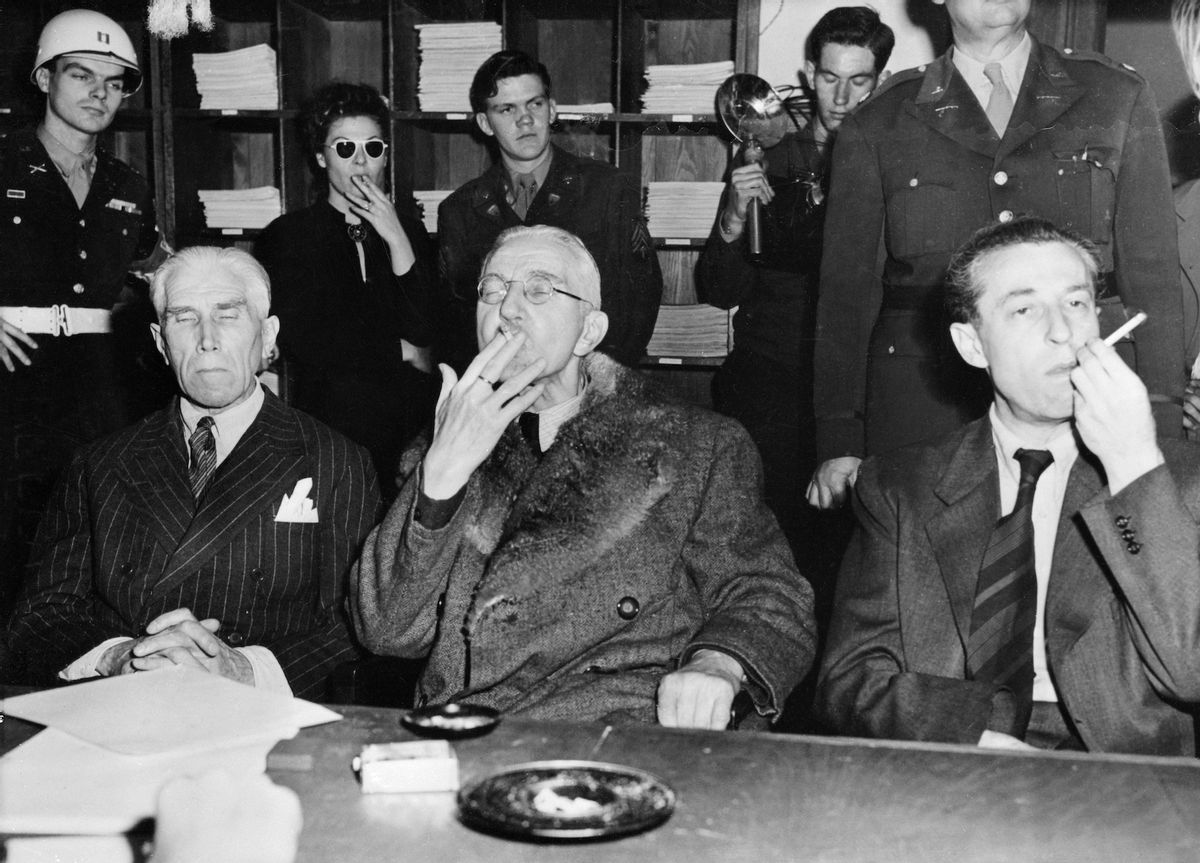- Joined
- Feb 21, 2012
- Messages
- 42,069
- Reaction score
- 13,776
- Location
- US Southwest
- Gender
- Male
- Political Leaning
- Liberal
If you come up with a point, let me know.your constantly framing things in whatever fantasy world you live in.
If you come up with a point, let me know.your constantly framing things in whatever fantasy world you live in.
Before the Depression, the National Socialists were losing votes. The chaos and financial hardships - along with the Nazi-induced violence - revived Hitler's chances.No, they saw Nazism as an alternative to the left. Everyone saw how leftists destroyed the Russian economy, so they took a chance on Hitler's version of socialism.
He nationalized the unions, he didn't eliminated them. You can't have independent unions in a socialist state. Unions in both Nazi Germany and Communist Russia became arms of the state.
Before the Depression, the National Socialists were losing votes. The chaos and financial hardships - along with the Nazi-induced violence - revived Hitler's chances.
Hitler celebrated trade unions one day, then (literally) shut them down the next. Workers were forced to join a new, state "union" called the German Labor Front.
You're very welcome.Appreciate the history.
There is so much to know about what went on.
Thanks.
Hitler celebrated trade unions one day, then (literally) shut them down the next. Workers were forced to join a new, state "union" called the German Labor Front.
Then they came for the penguins and I don't even know what to say.The "socialist state" that jailed, imprisoned and gassed actual socialists and Communists along with the Jews lmao OK.
"First they came for the Communists
And I did not speak out
Because I was not a Communist
Then they came for the Socialists
And I did not speak out
Because I was not a Socialist
Then they came for the trade unionists
And I did not speak out
Because I was not a trade unionist"
The advantage Hitler had was the high popular support and much of the media in Germany working for him. His putting the economy into war-mode created jobs, loans from US banks made it go.View attachment 67564080
From left: Former Nazi diplomat Franz von Papen, financier Hjalmar Schacht and propaganda chief Hans Fritsche after their acquittal on war crimes charges in Nuremberg, Oct. 4, 1946. (Bettmann/Getty Images)
Throughout the 1920s, most of Germany's wealthy industrialists preferred to support explicitly business-friendly conservative parties, who offered a less overtly destabilizing vision for the nation's future.
At first, most wealthy Nazi supporters were a mixed bag of aimless socialites, heirs and heiresses who wanted to feel special (in this case, racially and culturally special; see Nordic Circle) and those who held antisemitic beliefs or were attracted to Hitler's call for national revanchism and perhaps to Hitler himself.
But as the Weimar Republic's economy collapsed, so did the ruling coalition led by the center-left Social Democratic Party. Popular discontent emboldened both the Nazis and the Communists, and increasingly, industrial and banking leaders came to see Hitler as the weapon they could wield to crush the radical left.
Hitler outlined plans to purge the government of leftists and eliminate trade unions, arguing that the moneyed assemblage's economic interests were best served by assertive militarism and the outright destruction of Germany's parliamentary system. "Private enterprise cannot be maintained in the age of democracy," he declared.

When big business rolled over for fascism — and cashed in
The aspiring dictator promised to crush the left and deliver big profits — so the capitalist class went all-inwww.salon.com
Sound familiar?
Fun Facts: The company I. G. Farben went on to become the Bayer Corporation. Most American corporations supported all of it.
